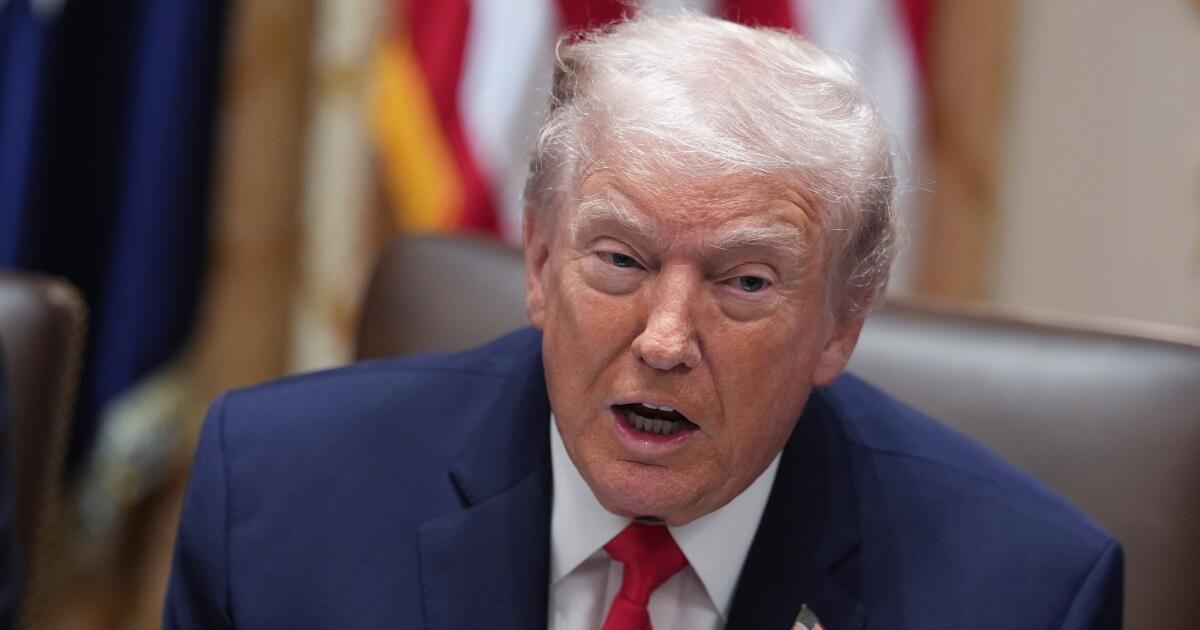Trump says he’s instructed U.S. officials to reopen Venezuelan airspace for commercial travel
WASHINGTON — President Donald Trump said Thursday he has informed acting Venezuelan President Delcy Rodríguez that he’s going to be opening up all commercial airspace over Venezuela and Americans will soon be able to visit.
Trump said he instructed U.S. Transportation Secretary Sean Duffy and U.S. military leaders to open up the airspace by the end of the day.
“American citizens will be very shortly able to go to Venezuela, and they’ll be safe there,” the Republican president said.
Venezuela’s government did not immediately comment on Trump’s announcement.
Earlier this week, Trump’s administration notified Congress that it was taking the first steps to possibly reopen the shuttered U.S. Embassy in Venezuela as it explores restoring relations with the South American country following the U.S. military raid that ousted then-President Nicolás Maduro.
In a notice to lawmakers dated Monday and obtained by The Associated Press on Tuesday, the State Department said it was sending in a regular and growing contingent of temporary staffers to conduct “select” diplomatic functions.
“We are writing to notify the committee of the Department of State’s intent to implement a phased approach to potentially resume Embassy Caracas operations,” the department said in separate but identical letters to 10 House and Senate committees.
Diplomatic relations between the two countries collapsed in 2019, and the U.S. State Department warned Americans shouldn’t travel to Venezuela, raising its travel advisory to the highest level.
The State Department on Thursday still listed a travel advisory for Venezuela at its highest level, “Do not travel,” warning that Americans face a high risk of wrongful detention, torture, kidnapping and more.
The State Department did not immediately respond to a message Thursday inquiring about whether it was changing its warning.
In November, as Trump was ramping up pressure on Maduro, he declared that the airspace “above and surrounding” Venezuela should be considered as “closed in its entirety.”
The U.S. Federal Aviation Administration, which has jurisdiction generally over the U.S. and its territories, then told pilots to be cautious flying around the country because of heightened military activity.
After that FAA warning, international airlines began canceling flights to Venezuela because of heightened military activity.
American Airlines, which was the last U.S. airline flying to Venezuela when it suspended flights there in March 2019, announced Thursday that it intends to reinstate nonstop service there from the U.S. in the coming months.
“We have a more than 30-year history connecting Venezolanos to the U.S., and we are ready to renew that incredible relationship,” Nat Pieper, American’s chief commercial officer, said in a statement. “By restarting service to Venezuela, American will offer customers the opportunity to reunite with families and create new business and commerce with the United States.”
American said it would share additional details about the return to service in the coming months as it works with federal authorities on security assessments and necessary permissions.
Price writes for the Associated Press. AP reporters Matthew Lee in Washington and Regina Garcia Cano in Caracas, Venezuela, contributed to this report.
